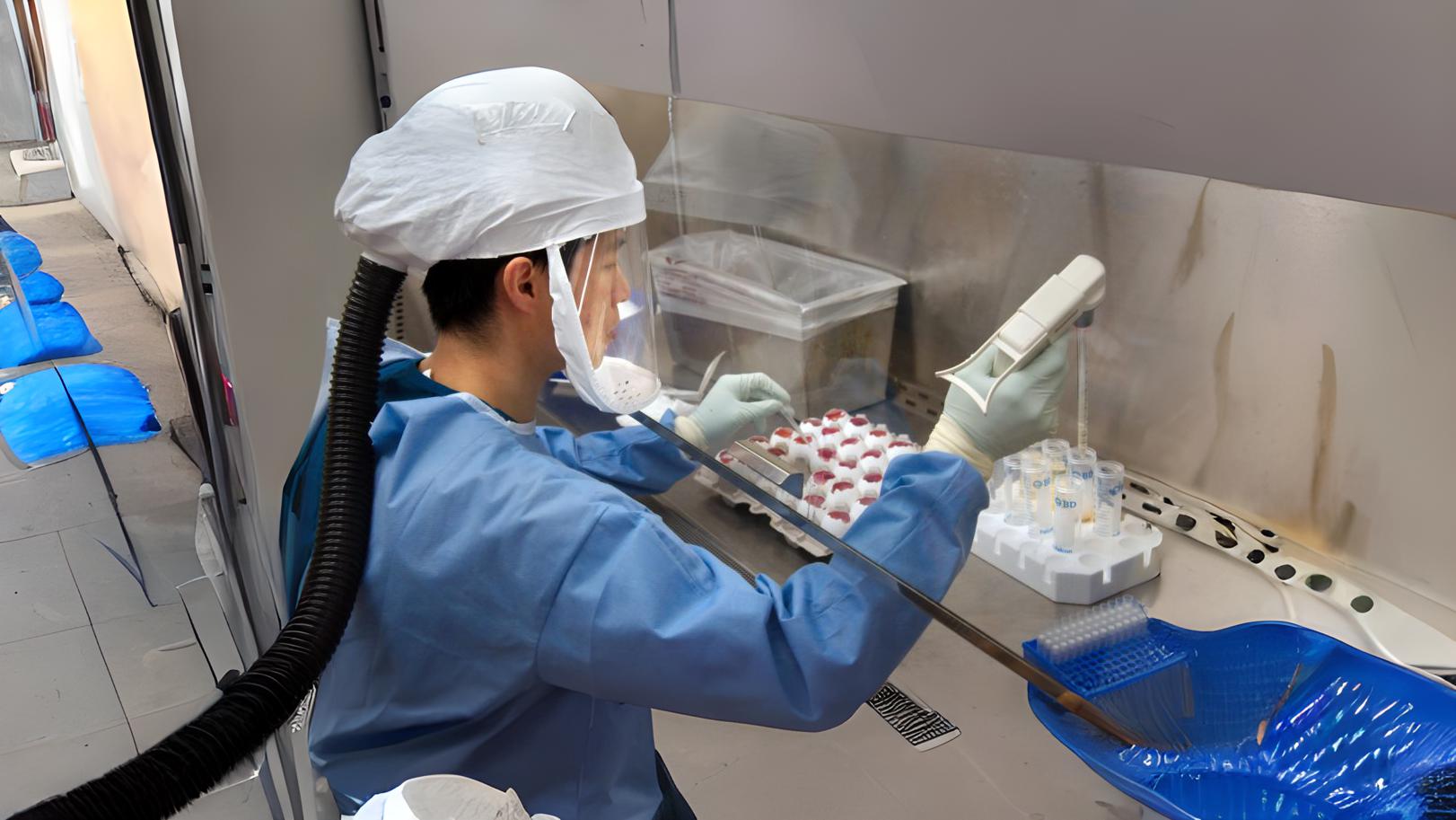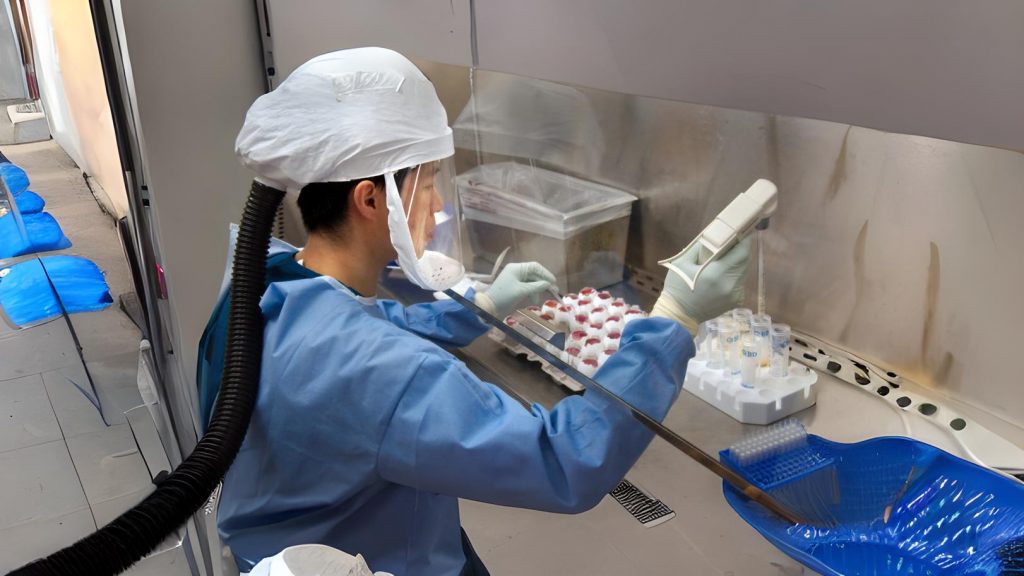The Importance of Data Innovations for the Future of Oncology Trials: An Interview with Sashka Dimitrievska
 3 years ago
By Josh Neil
3 years ago
By Josh Neil

Some of the largest changes happening in the clinical trial space are being seen in oncology. Oncology is a perfectly poised therapeutic area for rapid uptake of innovation, both by way of breadth of drug design innovations, rapidly developing trials (often bypassing Phase 2 altogether) and very large number of ongoing trials and fluid financial investments – these make this therapeutic area ideal for changes. From specific innovations such as use of molecularly targeted agents for immunotherapies to broad changes in thinking, it is clear the oncology trial space will be radically different in the coming decade. We spoke to Sashka Dimitrievska, Global Head for Oncology IP Clinical Insights at AstraZeneca, for her thoughts on the future of clinical trials in oncology.
For daily articles on the latest pharma trends and innovations, as well as interviews with leading experts and in-depth industry White Papers, subscribe to PharmaFeatures.com.
Proventa: Can you give us a brief introduction to your background and current activities?
Sashka Dimitrievska: I head up a global organisation at AstraZeneca, called Information Practice. It’s an unusual department in big pharma as it manages late-stage drug development processes by focusing on generating value from internal and external data and information. We have a lot of both, especially in oncology, and our portfolio at AstraZeneca is a multi-billion dollar portfolio across IO, oncology and haematology, and we work across all 3.
I’ve been at AstraZeneca since 2017. Prior to that I was at Alexion Pharma working in strategy and BD, before moving to the commercial side in marketing. I have a PhD in bioengineering and MBA from Yale University.
What is the most exciting oncological area in oncology you’re currently working on?
SD: It’s an interesting time for oncology, from many perspectives. For one, the industry is rapidly maturing its understanding of cancer and oncology itself. We now no longer think of it as just one disease, but instead as many thousands of different diseases. That’s really opened up a whole field of translational medicine, diagnostics, understanding the patient, patient segmentation, targeting patients better, personalising the medicine they receive even further. That’s translating a lot in what we’re seeing in therapeutics.
By way of clinical trial design, which is where I sit, we’re becoming a lot more specific about which patients we’re targeting and how we’re targeting them, so we can become more preventative, and we can intervene with cancer earlier. There’s a shift now to start earlier into the disease and into the diagnostic and be smarter.
And the last piece that’s really interesting in cancer regards the historic ‘swimming lanes’ in oncology. Whether you were working on checkpoint inhibitors, or chemotherapeutics, or surgical interventions, there were clear siloes in place. They’re very broken up now, and we’re looking at many more combinations. We’re also looking at them now more open-mindedly and creatively across IO, onc and hemes. So the real-world evidence and data we’re generating out of cancer now, beyond just trials and the commercial aspect, is becoming a lot more important. We used it for submissions for the first time this past year. And that’s just because we’re entering a new phase where we have a much better understanding scientifically, and better tools to diagnose this and intervene earlier.
Are silos still an issue in this field? What is the next big challenge to overcome them?
SD: Well currently, a haematologist doesn’t necessarily interact with an oncology surgeon specialist very often, for example. Obviously in primary care, and in the real world, those conversations and ways of thinking are certainly present. But in the research space, we’re seeing more and more bleed-over and therapeutics coming in – the haematology space, for example, with CAR-T and therapeutics – and being applied elsewhere. We’re seeing creative learning from different spaces – solid tumours into liquid, for example – and diagnostics and precision medicine, all bleed into one another. I think we’re on the cusp of that journey, but I don’t know if we’re really seeing the proof of it yet. I think the next big challenge will be in cancer, generally speaking, and value-add is going to come out of the better use of data.
Currently, the data and information is there, but in such large quantities that when you try to weed through it all it’s overwhelming, and it’s impossible to gain insight or clarity. So the new tools we’re developing So I think it’ll be around all these other tools we’re using around data that will be very helpful. When looking at past trends and trajectories and then future trends and trajectories.
What currently are the best tools to make this data more manageable? Of course AI/machine learning area major talking point right now: is this the best way to wrangle big data?
SD: The pharma industry as a whole is lagging behind the usage of data compared with other industries. Right now we’re playing catch-up, but I’m hoping we’ll see pharma leapfrog over those other areas because we’re seeing a lot of investments into healthcare to make AI and ML better.
AI/ML can really help with this data problem. There are many more connections and inferences that can be made. We have working drugs that have mechanisms of action in certain patient populations, that may have efficacies in other places we’re not naturally thinking of. By way of benchmarking, smarter AIs and ML connections are helping us get there.
So AI and ML are certainly one of the main ways we’re overcoming this data. But I do think we’ll see a lot of usage out of real-world data and evidence as well.
How have precision/personalised medicine been affected by COVID? Have they seen a rapid advancement?
SD: COVID-19 has forced us all to become better at selecting patients, sites and therapeutics. The virus depleted hospitals of patients in the first two quarters of 2020, and without patients you can’t run trials. That’s already a very competitive space. COVID has, in an agile way, shown how we can get better at identifying patients, and how to think more broadly and creatively. From a clinical operations standpoint, we all have preferred sites and regions or preferred partners, and we’ve had to expand beyond that into other markets and get creative. I think COVID’s given us a lot of learning points that will be carried on in other aspects, too. So certainly, personalised medicine has leapfrogged because of COVID.
Are there any other innovations or new technologies not yet mentioned which you think will radically change the area?
SD: There are many schools of thought on this. Some think about the next generations of gene therapies will create a huge change, some think preventative oncology, and I do think all these things will come to play eventually and have an impact. But in the shorter-term, in the next decade, I think we’ll see major shifts in oncology around better diagnostics, better liquid diagnostics, better patient identification, better targeting of therapeutics, and simply starting treatment earlier on cancer. I think those will see big changes occur soon.
To discuss these topics further with sector experts, and to ensure you remain up-to-date on the latest in clinical development, sign up for Proventa International’s Oncology Strategy Meeting, set for 17 June 2021.
Joshua Neil, Editor
Proventa International

Navigating the Complex World of Global Regulatory Affairs in Oncology
In today's fast-paced global pharmaceutical landscape, the regulatory affairs sector plays a pivotal role in ensuring the safety, efficacy, and market access of oncology drugs. As the demand for innovative cancer therapies continues to grow, understanding the intricacies of global...
11 months agoNavigating the Complex World of Global Regulatory Affairs in Oncology
In today's fast-paced global pharmaceutical landscape, the regulatory affairs sector plays a pivotal role in ensuring the safety, efficacy, and market access of oncology drugs. As the demand for innovative cancer therapies continues to grow, understanding the intricacies of global...
11 months ago
Overcoming the Hurdles: Navigating the Challenges in Oncology Clinical Trials
In the world of medical research, oncology clinical trials are at the forefront of innovation and discovery. These trials play a crucial role in advancing our understanding of cancer and developing more effective treatments. However, the path to successful oncology...
11 months agoOvercoming the Hurdles: Navigating the Challenges in Oncology Clinical Trials
In the world of medical research, oncology clinical trials are at the forefront of innovation and discovery. These trials play a crucial role in advancing our understanding of cancer and developing more effective treatments. However, the path to successful oncology...
11 months ago
Embracing a Patient-Centric Approach in Oncology Trials
In the realm of healthcare and medical research, the term "patient-centric" has gained significant traction in recent years. This shift in focus towards prioritizing patients' needs and preferences is not only transforming the healthcare industry but is also making waves...
11 months agoEmbracing a Patient-Centric Approach in Oncology Trials
In the realm of healthcare and medical research, the term "patient-centric" has gained significant traction in recent years. This shift in focus towards prioritizing patients' needs and preferences is not only transforming the healthcare industry but is also making waves...
11 months ago